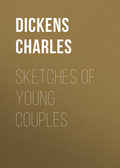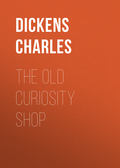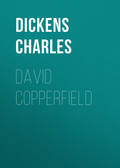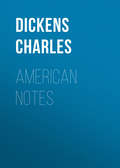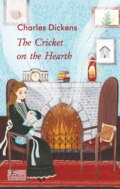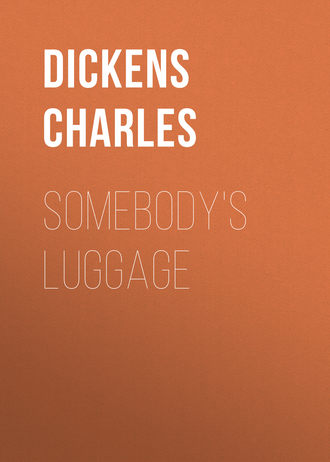
Чарльз Диккенс
Somebody's Luggage
Mr. Click parted from me with those words, and we broke off our acquaintance.
I became enamoured. Her name was Henrietta. Contending with my easy disposition, I frequently got up to go after her. She also dwelt in the neighbourhood of the Obstacle, and I did fondly hope that no other would interpose in the way of our union.
To say that Henrietta was volatile is but to say that she was woman. To say that she was in the bonnet-trimming is feebly to express the taste which reigned predominant in her own.
She consented to walk with me. Let me do her the justice to say that she did so upon trial. “I am not,” said Henrietta, “as yet prepared to regard you, Thomas, in any other light than as a friend; but as a friend I am willing to walk with you, on the understanding that softer sentiments may flow.”
We walked.
Under the influence of Henrietta’s beguilements, I now got out of bed daily. I pursued my calling with an industry before unknown, and it cannot fail to have been observed at that period, by those most familiar with the streets of London, that there was a larger supply. But hold! The time is not yet come!
One evening in October I was walking with Henrietta, enjoying the cool breezes wafted over Vauxhall Bridge. After several slow turns, Henrietta gaped frequently (so inseparable from woman is the love of excitement), and said, “Let’s go home by Grosvenor Place, Piccadilly, and Waterloo” – localities, I may state for the information of the stranger and the foreigner, well known in London, and the last a Bridge.
“No. Not by Piccadilly, Henrietta,” said I.
“And why not Piccadilly, for goodness’ sake?” said Henrietta.
Could I tell her? Could I confess to the gloomy presentiment that overshadowed me? Could I make myself intelligible to her? No.
“I don’t like Piccadilly, Henrietta.”
“But I do,” said she. “It’s dark now, and the long rows of lamps in Piccadilly after dark are beautiful. I will go to Piccadilly!”
Of course we went. It was a pleasant night, and there were numbers of people in the streets. It was a brisk night, but not too cold, and not damp. Let me darkly observe, it was the best of all nights – FOR THE PURPOSE.
As we passed the garden wall of the Royal Palace, going up Grosvenor Place, Henrietta murmured:
“I wish I was a Queen!”
“Why so, Henrietta?”
“I would make you Something,” said she, and crossed her two hands on my arm, and turned away her head.
Judging from this that the softer sentiments alluded to above had begun to flow, I adapted my conduct to that belief. Thus happily we passed on into the detested thoroughfare of Piccadilly. On the right of that thoroughfare is a row of trees, the railing of the Green Park, and a fine broad eligible piece of pavement.
“Oh my!” cried Henrietta presently. “There’s been an accident!”
I looked to the left, and said, “Where, Henrietta?”
“Not there, stupid!” said she. “Over by the Park railings. Where the crowd is. Oh no, it’s not an accident, it’s something else to look at! What’s them lights?”
She referred to two lights twinkling low amongst the legs of the assemblage: two candles on the pavement.
“Oh, do come along!” cried Henrietta, skipping across the road with me. I hung back, but in vain. “Do let’s look!”
Again, designs upon the pavement. Centre compartment, Mount Vesuvius going it (in a circle), supported by four oval compartments, severally representing a ship in heavy weather, a shoulder of mutton attended by two cucumbers, a golden harvest with distant cottage of proprietor, and a knife and fork after nature; above the centre compartment a bunch of grapes, and over the whole a rainbow. The whole, as it appeared to me, exquisitely done.
The person in attendance on these works of art was in all respects, shabbiness excepted, unlike the former personage. His whole appearance and manner denoted briskness. Though threadbare, he expressed to the crowd that poverty had not subdued his spirit, or tinged with any sense of shame this honest effort to turn his talents to some account. The writing which formed a part of his composition was conceived in a similarly cheerful tone. It breathed the following sentiments: “The writer is poor, but not despondent. To a British 1 2 3 4 5 6 7 8 9 0 Public he £ s. d. appeals. Honour to our brave Army! And also 0 9 8 7 6 5 4 3 2 1 to our gallant Navy. BRITONS STRIKE the A B C D E F G writer in common chalks would be grateful for any suitable employment HOME! HURRAH!” The whole of this writing appeared to me to be exquisitely done.
But this man, in one respect like the last, though seemingly hard at it with a great show of brown paper and rubbers, was only really fattening the down-stroke of a letter here and there, or blowing the loose chalk off the rainbow, or toning the outside edge of the shoulder of mutton. Though he did this with the greatest confidence, he did it (as it struck me) in so ignorant a manner, and so spoilt everything he touched, that when he began upon the purple smoke from the chimney of the distant cottage of the proprietor of the golden harvest (which smoke was beautifully soft), I found myself saying aloud, without considering of it:
“Let that alone, will you?”
“Halloa!” said the man next me in the crowd, jerking me roughly from him with his elbow, “why didn’t you send a telegram? If we had known you was coming, we’d have provided something better for you. You understand the man’s work better than he does himself, don’t you? Have you made your will? You’re too clever to live long.”
“Don’t be hard upon the gentleman, sir,” said the person in attendance on the works of art, with a twinkle in his eye as he looked at me; “he may chance to be an artist himself. If so, sir, he will have a fellow-feeling with me, sir, when I” – he adapted his action to his words as he went on, and gave a smart slap of his hands between each touch, working himself all the time about and about the composition – “when I lighten the bloom of my grapes – shade off the orange in my rainbow – dot the i of my Britons – throw a yellow light into my cow-cum-ber– insinuate another morsel of fat into my shoulder of mutton – dart another zigzag flash of lightning at my ship in distress!”
He seemed to do this so neatly, and was so nimble about it, that the halfpence came flying in.
“Thanks, generous public, thanks!” said the professor. “You will stimulate me to further exertions. My name will be found in the list of British Painters yet. I shall do better than this, with encouragement. I shall indeed.”
“You never can do better than that bunch of grapes,” said Henrietta. “Oh, Thomas, them grapes!”
“Not better than that, lady? I hope for the time when I shall paint anything but your own bright eyes and lips equal to life.”
“(Thomas, did you ever?) But it must take a long time, sir,” said Henrietta, blushing, “to paint equal to that.”
“I was prenticed to it, miss,” said the young man, smartly touching up the composition – “prenticed to it in the caves of Spain and Portingale, ever so long and two year over.”
There was a laugh from the crowd; and a new man who had worked himself in next me, said, “He’s a smart chap, too; ain’t he?”
“And what a eye!” exclaimed Henrietta softly.
“Ah! He need have a eye,” said the man.
“Ah! He just need,” was murmured among the crowd.
“He couldn’t come that ’ere burning mountain without a eye,” said the man. He had got himself accepted as an authority, somehow, and everybody looked at his finger as it pointed out Vesuvius. “To come that effect in a general illumination would require a eye; but to come it with two dips – why, it’s enough to blind him!”
That impostor, pretending not to have heard what was said, now winked to any extent with both eyes at once, as if the strain upon his sight was too much, and threw back his long hair – it was very long – as if to cool his fevered brow. I was watching him doing it, when Henrietta suddenly whispered, “Oh, Thomas, how horrid you look!” and pulled me out by the arm.
Remembering Mr. Click’s words, I was confused when I retorted, “What do you mean by horrid?”
“Oh gracious! Why, you looked,” said Henrietta, “as if you would have his blood.”
I was going to answer, “So I would, for twopence – from his nose,” when I checked myself and remained silent.
We returned home in silence. Every step of the way, the softer sentiments that had flowed, ebbed twenty mile an hour. Adapting my conduct to the ebbing, as I had done to the flowing, I let my arm drop limp, so as she could scarcely keep hold of it, and I wished her such a cold good-night at parting, that I keep within the bounds of truth when I characterise it as a Rasper.
In the course of the next day I received the following document:
“Henrietta informs Thomas that my eyes are open to you. I must ever wish you well, but walking and us is separated by an unfarmable abyss. One so malignant to superiority – Oh that look at him! – can never never conduct
HENRIETTA
P.S. – To the altar.”
Yielding to the easiness of my disposition, I went to bed for a week, after receiving this letter. During the whole of such time, London was bereft of the usual fruits of my labour. When I resumed it, I found that Henrietta was married to the artist of Piccadilly.
Did I say to the artist? What fell words were those, expressive of what a galling hollowness, of what a bitter mockery! I – I – I – am the artist. I was the real artist of Piccadilly, I was the real artist of the Waterloo Road, I am the only artist of all those pavement-subjects which daily and nightly arouse your admiration. I do ’em, and I let ’em out. The man you behold with the papers of chalks and the rubbers, touching up the down-strokes of the writing and shading off the salmon, the man you give the credit to, the man you give the money to, hires – yes! and I live to tell it! – hires those works of art of me, and brings nothing to ’em but the candles.
Such is genius in a commercial country. I am not up to the shivering, I am not up to the liveliness, I am not up to the wanting-employment-in-an-office move; I am only up to originating and executing the work. In consequence of which you never see me; you think you see me when you see somebody else, and that somebody else is a mere Commercial character. The one seen by self and Mr. Click in the Waterloo Road can only write a single word, and that I taught him, and it’s MULTIPLICATION – which you may see him execute upside down, because he can’t do it the natural way. The one seen by self and Henrietta by the Green Park railings can just smear into existence the two ends of a rainbow, with his cuff and a rubber – if very hard put upon making a show – but he could no more come the arch of the rainbow, to save his life, than he could come the moonlight, fish, volcano, shipwreck, mutton, hermit, or any of my most celebrated effects.
To conclude as I began: if there’s a blighted public character going, I am the party. And often as you have seen, do see, and will see, my Works, it’s fifty thousand to one if you’ll ever see me, unless, when the candles are burnt down and the Commercial character is gone, you should happen to notice a neglected young man perseveringly rubbing out the last traces of the pictures, so that nobody can renew the same. That’s me.
CHAPTER IV – HIS WONDERFUL END
It will have been, ere now, perceived that I sold the foregoing writings. From the fact of their being printed in these pages, the inference will, ere now, have been drawn by the reader (may I add, the gentle reader?) that I sold them to One who never yet —2
Having parted with the writings on most satisfactory terms, – for, in opening negotiations with the present Journal, was I not placing myself in the hands of One of whom it may be said, in the words of Another, {2,} – resumed my usual functions. But I too soon discovered that peace of mind had fled from a brow which, up to that time, Time had merely took the hair off, leaving an unruffled expanse within.
It were superfluous to veil it, – the brow to which I allude is my own.
Yes, over that brow uneasiness gathered like the sable wing of the fabled bird, as – as no doubt will be easily identified by all right-minded individuals. If not, I am unable, on the spur of the moment, to enter into particulars of him. The reflection that the writings must now inevitably get into print, and that He might yet live and meet with them, sat like the Hag of Night upon my jaded form. The elasticity of my spirits departed. Fruitless was the Bottle, whether Wine or Medicine. I had recourse to both, and the effect of both upon my system was witheringly lowering.
In this state of depression, into which I subsided when I first began to revolve what could I ever say if He – the unknown – was to appear in the Coffee-room and demand reparation, I one forenoon in this last November received a turn that appeared to be given me by the finger of Fate and Conscience, hand in hand. I was alone in the Coffee-room, and had just poked the fire into a blaze, and was standing with my back to it, trying whether heat would penetrate with soothing influence to the Voice within, when a young man in a cap, of an intelligent countenance, though requiring his hair cut, stood before me.
“Mr. Christopher, the Head Waiter?”
“The same.”
The young man shook his hair out of his vision, – which it impeded, – to a packet from his breast, and handing it over to me, said, with his eye (or did I dream?) fixed with a lambent meaning on me, “THE PROOFS.”
Although I smelt my coat-tails singeing at the fire, I had not the power to withdraw them. The young man put the packet in my faltering grasp, and repeated, – let me do him the justice to add, with civility:
“THE PROOFS. A. Y. R.”
With those words he departed.
A. Y. R.? And You Remember. Was that his meaning? At Your Risk. Were the letters short for that reminder? Anticipate Your Retribution. Did they stand for that warning? Out-dacious Youth Repent? But no; for that, a O was happily wanting, and the vowel here was a A.
I opened the packet, and found that its contents were the foregoing writings printed just as the reader (may I add the discerning reader?) peruses them. In vain was the reassuring whisper, – A.Y.R., All the Year Round, – it could not cancel the Proofs. Too appropriate name. The Proofs of my having sold the Writings.
My wretchedness daily increased. I had not thought of the risk I ran, and the defying publicity I put my head into, until all was done, and all was in print. Give up the money to be off the bargain and prevent the publication, I could not. My family was down in the world, Christmas was coming on, a brother in the hospital and a sister in the rheumatics could not be entirely neglected. And it was not only ins in the family that had told on the resources of one unaided Waitering; outs were not wanting. A brother out of a situation, and another brother out of money to meet an acceptance, and another brother out of his mind, and another brother out at New York (not the same, though it might appear so), had really and truly brought me to a stand till I could turn myself round. I got worse and worse in my meditations, constantly reflecting “The Proofs,” and reflecting that when Christmas drew nearer, and the Proofs were published, there could be no safety from hour to hour but that He might confront me in the Coffee-room, and in the face of day and his country demand his rights.
The impressive and unlooked-for catastrophe towards which I dimly pointed the reader (shall I add, the highly intellectual reader?) in my first remarks now rapidly approaches.
It was November still, but the last echoes of the Guy Foxes had long ceased to reverberate. We was slack, – several joints under our average mark, and wine, of course, proportionate. So slack had we become at last, that Beds Nos. 26, 27, 28, and 31, having took their six o’clock dinners, and dozed over their respective pints, had drove away in their respective Hansoms for their respective Night Mail-trains and left us empty.
I had took the evening paper to No. 6 table, – which is warm and most to be preferred, – and, lost in the all-absorbing topics of the day, had dropped into a slumber. I was recalled to consciousness by the well-known intimation, “Waiter!” and replying, “Sir!” found a gentleman standing at No. 4 table. The reader (shall I add, the observant reader?) will please to notice the locality of the gentleman, —at No. 4 table.
He had one of the newfangled uncollapsable bags in his hand (which I am against, for I don’t see why you shouldn’t collapse, while you are about it, as your fathers collapsed before you), and he said:
“I want to dine, waiter. I shall sleep here to-night.”
“Very good, sir. What will you take for dinner, sir?”
“Soup, bit of codfish, oyster sauce, and the joint.”
“Thank you, sir.”
I rang the chambermaid’s bell; and Mrs. Pratchett marched in, according to custom, demurely carrying a lighted flat candle before her, as if she was one of a long public procession, all the other members of which was invisible.
In the meanwhile the gentleman had gone up to the mantelpiece, right in front of the fire, and had laid his forehead against the mantelpiece (which it is a low one, and brought him into the attitude of leap-frog), and had heaved a tremenjous sigh. His hair was long and lightish; and when he laid his forehead against the mantelpiece, his hair all fell in a dusty fluff together over his eyes; and when he now turned round and lifted up his head again, it all fell in a dusty fluff together over his ears. This give him a wild appearance, similar to a blasted heath.
“O! The chambermaid. Ah!” He was turning something in his mind. “To be sure. Yes. I won’t go up-stairs now, if you will take my bag. It will be enough for the present to know my number. – Can you give me 24 B?”
(O Conscience, what a Adder art thou!)
Mrs. Pratchett allotted him the room, and took his bag to it. He then went back before the fire, and fell a biting his nails.
“Waiter!” biting between the words, “give me,” bite, “pen and paper; and in five minutes,” bite, “let me have, if you please,” bite, “a”, bite, “Messenger.”
Unmindful of his waning soup, he wrote and sent off six notes before he touched his dinner. Three were City; three West-End. The City letters were to Cornhill, Ludgate-hill, and Farringdon Street. The West-End letters were to Great Marlborough Street, New Burlington Street, and Piccadilly. Everybody was systematically denied at every one of the six places, and there was not a vestige of any answer. Our light porter whispered to me, when he came back with that report, “All Booksellers.”
But before then he had cleared off his dinner, and his bottle of wine. He now – mark the concurrence with the document formerly given in full! – knocked a plate of biscuits off the table with his agitated elber (but without breakage), and demanded boiling brandy-and-water.
Now fully convinced that it was Himself, I perspired with the utmost freedom. When he became flushed with the heated stimulant referred to, he again demanded pen and paper, and passed the succeeding two hours in producing a manuscript which he put in the fire when completed. He then went up to bed, attended by Mrs. Pratchett. Mrs. Pratchett (who was aware of my emotions) told me, on coming down, that she had noticed his eye rolling into every corner of the passages and staircase, as if in search of his Luggage, and that, looking back as she shut the door of 24 B, she perceived him with his coat already thrown off immersing himself bodily under the bedstead, like a chimley-sweep before the application of machinery.



